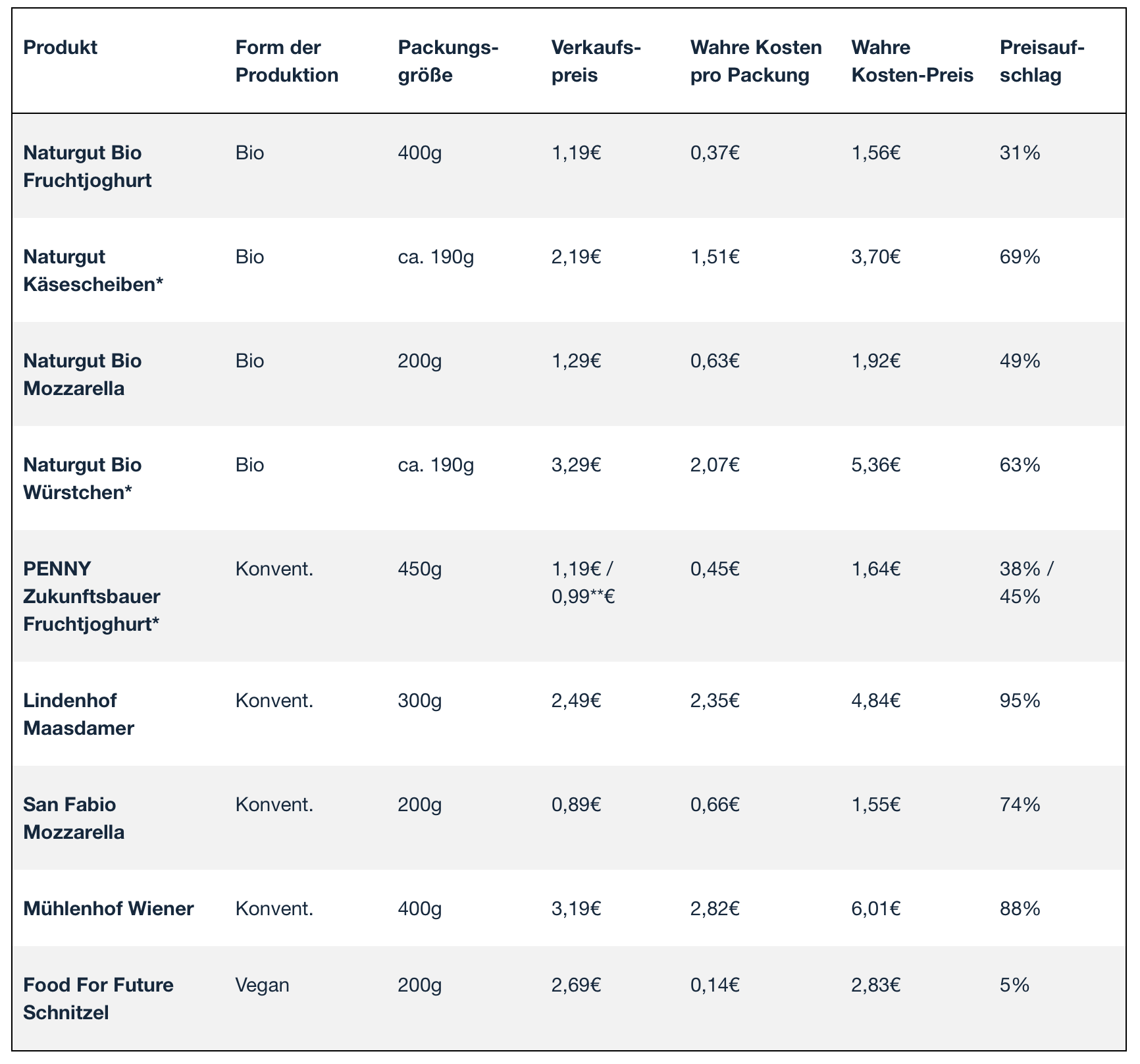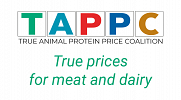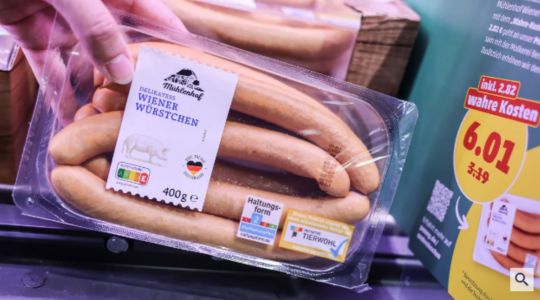Germans pay two time more for cheese in supermarket: 'true price'
Consumers suddenly have to pay almost twice as much this week for nine products at the German supermarket Penny, such as cheese and sausage. These products will be sold this week for the 'real price', which also includes the costs for the environment and health. The aim of the experiment is to make German buyers aware of the actual environmental and health costs of products offered in supermarkets. Current prices do not reflect these costs.
For nine products, customers of supermarket chain Penny Market must pay the "actual price" this week. The German discounter calculates the costs of environmental damage, which means that a ball of mozzarella is almost twice as expensive.
"The impact of our food production is not reflected in the prices of our food," Penny Market's CEO told German media. 'This pilot projects shows what governments should do: start environmental taxes on food products like meat and dairy to make sure all environmental costs are reflected in the price, like our report 'Pay as you eat meat, dairy and eggs' shows, said Jeroom Remmers, director of True Animal Protein Price Coalition (TAPP Coalition).
For nine products, for example, the amount of methane emitted by cattle or the amount of CO2 emitted by a tractor is taken into account. And if pesticides or nitrogen end up in the groundwater during production, the product also becomes more expensive.
As a result, a pack of pre-cut Maasdam cheese costs 4.84 euros instead of 2.49 euros this week. It takes 25 liters of water to produce a 300 gram pack. The price of a ball of mozzarella has also almost doubled: from 89 cents to 1.55 euros. A pack of Viennese sausage costs 6.01 euros instead of 3.19 euros (see photo). But a vegan schnitzel remains almost the same price. It has only become 14 cents more expensive and now costs 2.83 euros.
The promotion is a collaboration with the Universität Greifswald and the Technische Hochschule Nürnberg, who calculated the true prices. The promotion runs in the 2,150 branches of the supermarket chain. The extra profit is converted into a donation, according to the discounter.
This concerns both organic and non-organic products, such as fruit yoghurt, cheese, mozzarella and sausage. Scientists from the Technical University of Nuremberg and the University of Greifswald have calculated the prices of the products based on four factors: climate, water, soil and health. Prof. Tobias Gaugler is one of the scientists and part of the European FoodCoST research project, coordinated by Willy Baltussen (Wageningen University). TAPP Coalition is part of the Community of Practice of the FoodCoST project. Willy Baltussen also coordinated a report on health costs per kg meat, commissioned by TAPP Coalition.
Climate costs refer to the greenhouse gas emissions created within the entire production process. Water is understood to mean consumption and pollution. Something similar applies to the soil and its degradation as a result of production. By health, Penny refers to the effects of products on human and animal health.

More news on this theme:
WeTransfer link with TV and newspaper reports in Germany: https://wetransfer.com/downloads/9c159dfc9cfb69ca49912a3dc9800fdb20230731204813/a911a1


